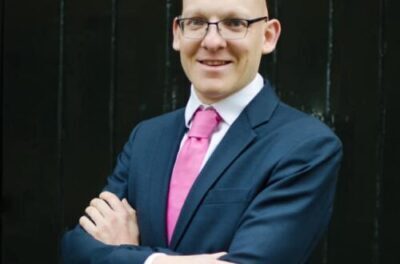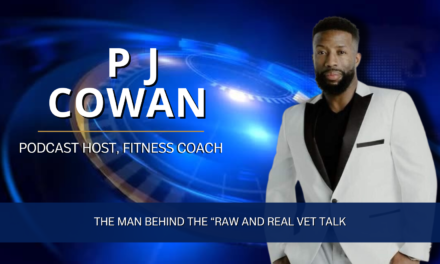Rhett Hintze is a seasoned operations executive with over two decades of experience in business strategy, public sector procurement, and organizational leadership. He served as Chief Operating Officer at Bravo Group, Pennsylvania’s largest privately-held strategic communications firm, from 2001 to 2024. During his tenure, Rhett oversaw critical aspects of the company’s growth, scaling operations by 130%, implementing innovative technological solutions, and reducing annual expenses by 15%. His work focused on optimizing processes, improving profitability, and aligning business strategies with client needs.
Rhett Hintze began his career in public service, holding key roles in the Commonwealth of Pennsylvania’s Governor’s Office of Administration. There, he developed multi-agency technology policies and coordinated e-government strategies. His early experiences in state government shaped his approach to leadership, emphasizing transparency, collaboration, and empathy.
A native of Wisconsin, Rhett earned a Bachelor of Science in Business Administration from Brigham Young University and a Master of Public Administration in Public Finance from Syracuse University. Fluent in English and Spanish, he brings a global perspective to his work. Outside of his professional pursuits, Rhett enjoys road trips, horticulture, skiing, and supporting philanthropic causes such as the Daraja Academy in Kenya and the MidWest Food Bank in Harrisburg, Pennsylvania.
What inspired you to pursue a career in business operations and public administration?
I’ve always been drawn to solving complex problems and creating efficient systems. Growing up in Wisconsin, my father’s work as an electrical engineer instilled in me a respect for structure and precision, while my mother’s focus on family emphasized the value of collaboration. These influences shaped my interest in operations. My educational journey at Brigham Young University and Syracuse University solidified this path, providing me with the tools to approach organizational challenges strategically.
How did your early career in state government shape your leadership style?
Working in the Commonwealth of Pennsylvania gave me invaluable exposure to large-scale decision-making and multi-agency coordination. It taught me the importance of aligning diverse stakeholders toward common goals and the patience required to navigate bureaucratic systems. That experience shaped my belief in transparent communication and empathy as cornerstones of effective leadership.
Can you describe a particularly challenging project during your tenure at Bravo Group and how you overcame it?
One challenge was implementing a company-wide shift to a new technology platform that impacted nearly every operational process. Resistance to change is always something to understand and address.. I focused on transparency, communicating the long-term benefits and providing thorough training. By engaging staff in the decision-making process and addressing concerns directly, we not only succeeded in the transition but also improved company-wide adoption rates for future initiatives.
How do you approach balancing short-term goals with long-term organizational strategies?
I believe in setting clear objectives that align with the broader mission, then breaking them into actionable, short-term tasks. Weekly reviews ensure that immediate priorities don’t overshadow long-term goals. It’s about keeping the big picture in focus while adapting tactically to daily realities. Flexibility is key to this balance.
What role does technology play in modern business operations?
Technology is foundational—it’s no longer an option but a necessity. At Bravo Group, integrating advanced tools streamlined our processes and enhanced client service delivery. I’ve seen firsthand how technologies like real-time data analytics and project management software can reduce inefficiencies and improve profitability. However, it’s critical to align technology with organizational culture to maximize its impact.
How do you foster a culture of innovation within a team?
Innovation thrives when people feel safe to experiment and fail. I encourage my teams to question established practices and propose new ideas, no matter how unconventional they may seem. I also ensure that feedback—whether positive or constructive—is always focused on growth. When employees see their contributions valued, it cultivates an innovative mindset across the organization.
What advice would you give to someone aspiring to a leadership role in operations?
Understand your organization’s intricacies. Leadership in operations requires not just managing systems but knowing how those systems impact people. Build relationships across departments and listen actively to understand their pain points. It’s also crucial to stay curious—learn continuously, whether from formal education, mentorship, or hands-on experience.
How has your experience in public sector procurement influenced your approach to private sector operations?
The public sector taught me the importance of accountability, process transparency, and strategic resource allocation. These principles are equally relevant in the private sector. For example, I applied my knowledge of cost analysis and resource optimization to develop pricing models at Bravo Group that balanced profitability with client value.
What do you consider your greatest professional achievement?
Scaling Bravo Group’s operations while maintaining cost efficiency was a significant milestone. During my tenure, we grew the workforce by 130%, reduced expenses by 15% annually, and implemented a suite of innovations that increased profitability. Seeing those changes positively impact the organization and its clients remains a highlight of my career.
What’s next for you professionally, and how do you see your role evolving in the future?
I’m excited about leveraging my expertise in operational strategy to mentor emerging leaders and consult on projects that drive meaningful organizational transformation. I see my future role will continue to include advisory work, where I can help organizations align their operational processes with their long-term vision, ensuring sustainable growth. Balancing this with my philanthropic interests will be a priority as well.




